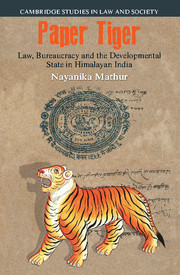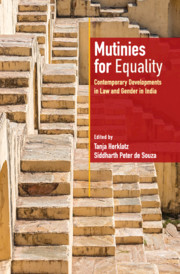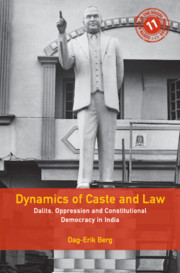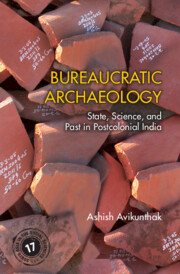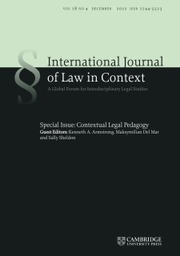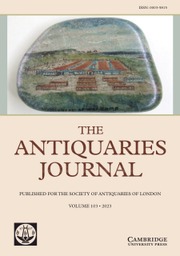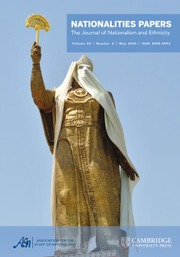Paper Tiger
Law, Bureaucracy and the Developmental State in Himalayan India
Part of Cambridge Studies in Law and Society
- Author: Nayanika Mathur, University of Cambridge
- Date Published: December 2015
- availability: In stock
- format: Hardback
- isbn: 9781107106970
Hardback
Other available formats:
Paperback, eBook
Looking for an inspection copy?
Please email [email protected] to enquire about an inspection copy of this book
-
A big cat overthrows the Indian state and establishes a reign of terror over the residents of a Himalayan town. A welfare legislation aimed at providing employment and commanding a huge budget becomes 'unimplementable' in a region bedeviled by high levels of poverty and unemployment. Paper Tiger provides a lively ethnographic account of how such seemingly bizarre scenarios come to be in contemporary India. Based on eighteen months of intensive fieldwork, this book presents a unique explanation for why and how progressive laws can do what they do and not, ever-so-often, what they are supposed to do. It reveals the double-edged effects of the reforms that have been ushered in by the post-liberalization Indian state, particularly the effort to render itself more transparent and accountable. Through a meticulous detailing of everyday bureaucratic life on the Himalayan borderland, Paper Tiger makes an argument for shifting the very frames of thought through which we apprehend the workings of the developmental Indian state.
Awards
- Co-Winner, Sharon Stephens Prize, American Ethnological Society
Reviews & endorsements
'This outstanding ethnography offers a rich glimpse of the workings of the state in a remote area of India. It shows that the problem of the implementation of law in India is less a problem of corruption or of neo-liberal governmentality and more a problem of the way in which the social life of paper produces a strange combination of affect and effect at the local level. Bureaucratic rule is created through the materiality of documents, letters and written texts which implement the state rather than the law, a paradox which explains both the omnipresence of the state and its limited effects on policy. This book will be of great interest to all students of the state, law and bureaucracy.' Arjun Appadurai, New York University
See more reviews'Demonstrating a stunning intimacy with the life of bureaucracy in a remote region of India, Paper Tiger brings alive the everyday forms of bureaucratic practice. The book is conceptually innovative and a model of ethnographic writing that will have a decisive impact on the study of the state in India and beyond. Above all, it is written with flair and an irony that makes it stand next to such literary classics as Krishna Sobti's rendering of lower level bureaucracy in Yaaron ke Yaar.' Veena Das, The Johns Hopkins University
'Carefully researched and subtly argued, this book is a great Indian novel and an artful anthropological study in one. It first brings paper to life, and then pivots on the unforgettable tale of humans-as-prey and an all too slowly hunted, hungry leopard/tiger.' Annemarie Mol, University of Amsterdam
'In the burgeoning literature on the anthropology of state, Mathur's contribution is a significant one. Paper Tiger takes the inquiry of state away from the body of the state, into the domains of language, affect, emotion, time and space.' Atreyee Majumder, Economic and Political Weekly
'Mathur's contribution to the field of studying state practices, law and bureaucracy, apart from being a revelation of the peculiar context of the Indian state, is also a methodological novelty in the field of writing and doing ethnography … I would always go back to reading Paper Tiger as it is a compelling and grounded ethnography which presents a reflective stance on the process of its own making while delightfully elaborating on what it engages with.' Subhashim Goswami, Allegra Lab (www.allegralaboratory.net)
'Paper Tiger is a brilliant book, an outstanding achievement of research and understanding. Mathur's witty and accessible prose rests on a foundation of serious scholarship and groundbreaking methodology. … Paper Tiger is highly recommended, essential reading for all those first approaching the study of the Indian subcontinent, NGO workers and institutional and private international development donors.' Elisabetta Iob, The London School of Economics and Political Science Book Review (www.blogs.lse.ac.uk)
'Nayanika Mathur's Paper Tiger is an ethnographic work that reads beautifully for scholars and non-scholars alike. … (Mathur's study) lays the necessary groundwork for more detailed explorations of the roles and the effects of laws targeting the improvement of the livelihoods of the poor in developmental states. The strength of this work rests in the author's convincing representation of bureaucracy as an axis that generates affection through its effective use banalization and specialization. It adds depth and nuance to a growing body of scholarly work on transparency and accountability, as well as on Indian welfare laws and political culture.' Irene Hadiprayitno, The Journal of Legal Pluralism and Unofficial Law
Customer reviews
Not yet reviewed
Be the first to review
Review was not posted due to profanity
×Product details
- Date Published: December 2015
- format: Hardback
- isbn: 9781107106970
- length: 203 pages
- dimensions: 237 x 160 x 18 mm
- weight: 0.43kg
- availability: In stock
Table of Contents
Acknowledgements
Glossary
Acronyms
Prologue
Introduction
1. A remote town: the paper state
2. The state life of law
3. The material production of transparency
4. The letter of the state
5. Meeting one another: paper tiger?
6. The reign of terror of the big cat
Conclusion: the state as a paper tiger
References
Index.
Sorry, this resource is locked
Please register or sign in to request access. If you are having problems accessing these resources please email [email protected]
Register Sign in» Proceed
You are now leaving the Cambridge University Press website. Your eBook purchase and download will be completed by our partner www.ebooks.com. Please see the permission section of the www.ebooks.com catalogue page for details of the print & copy limits on our eBooks.
Continue ×Are you sure you want to delete your account?
This cannot be undone.
Thank you for your feedback which will help us improve our service.
If you requested a response, we will make sure to get back to you shortly.
×
